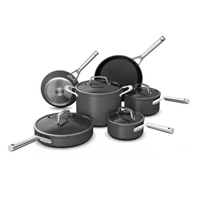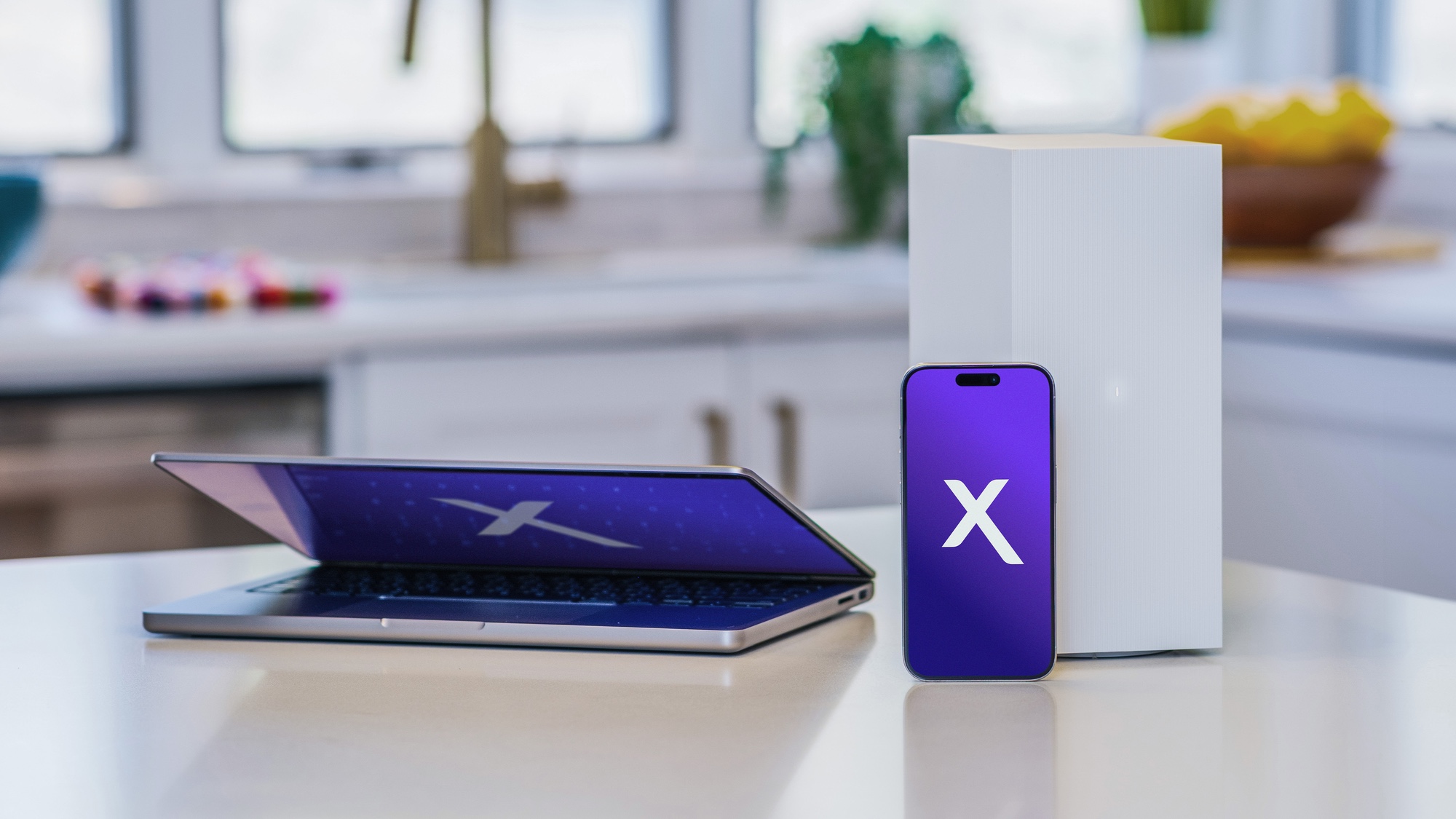5 mistakes I made when I switched to an induction cooktop — and how to avoid them
Don't make the same mistakes I did
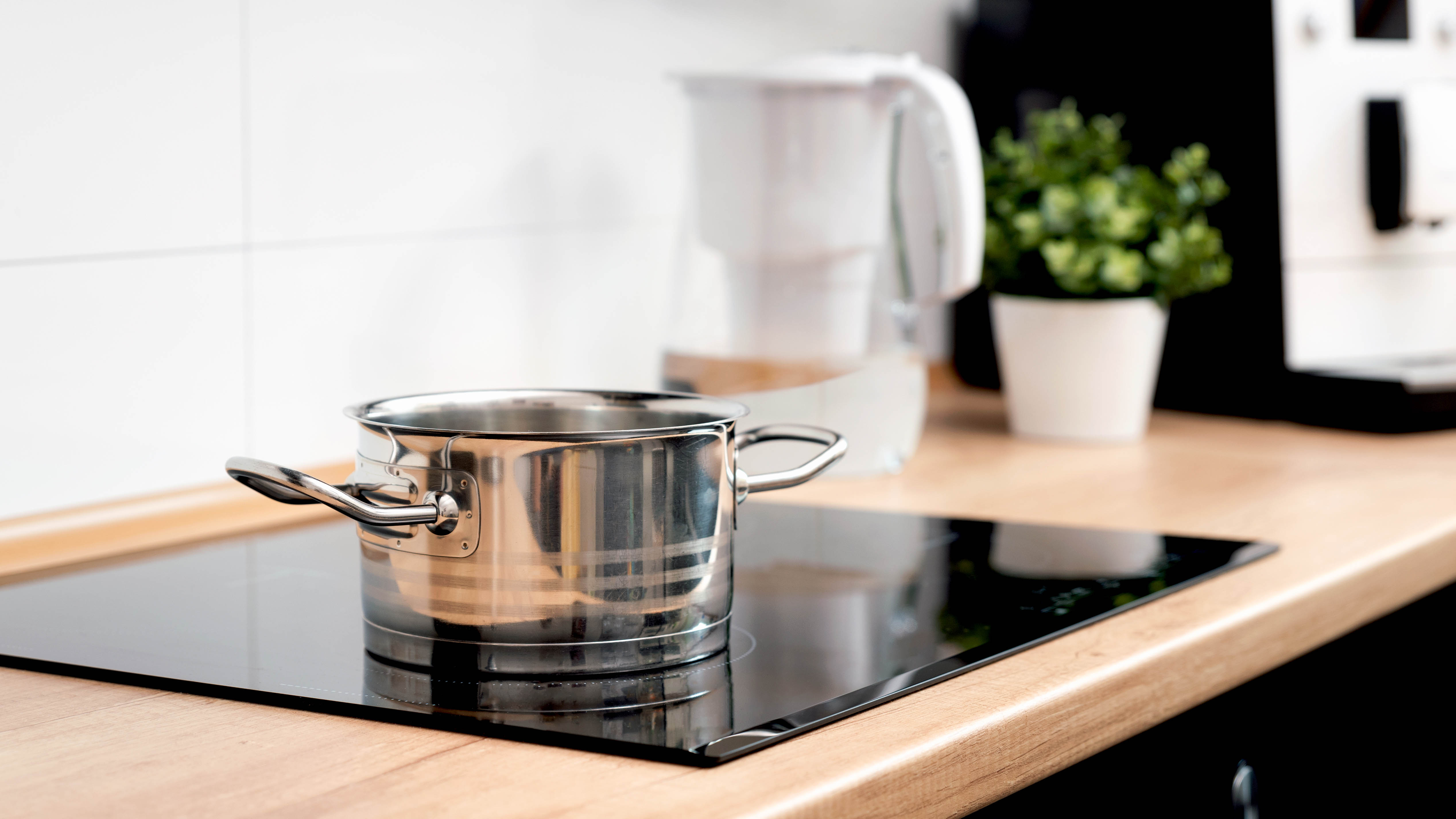
I recently revealed the reasons I switched to induction cooking - and while I’ll never go back. But, while I’m a huge advocate for induction cooktops now, it was still an adjustment before I felt that my cooking was safer and easier. Plus, over time, my food has even tasted better (if I do say so myself) If you don’t learn how to use your induction cooktop right though, you're at risk of damaging your pans, and even the cooktop itself.
Before I switched, I researched all the things you need to know before buying an induction cooktop, but since then, I’ve established some top tips of my own with hands-on experience. Luckily, I’m about to impart this induction cooktop wisdom below - so you don’t have to make the same mistakes I did.
1. Using the wrong pans
First things first, when you switch to an induction cooktop, you’ll need to purchase induction compatible cookware. There’s a chance the cookware you have, if you’ve bought it fairly recently, may already be induction compatible - but it’s really important that you’re 100% sure. Why? Well, the cookware just won’t heat up if you try to use it. Fortunately, you won’t cause any damage by trying, but you certainly won’t be cooking any food.
While experts say that pans made of cast-iron are safe to use and naturally induction compatible, you have to be careful when using high heats as it can affect the coating of the pans that will wear over time. The same goes for non-stick cookware. It's great for using less oil and healthier food, but you won’t benefit from this if the coating has been ruined by excessive heat on your induction cooktop. With their smooth surface and induction compatibility, experts say stainless steel pans work well on an induction cooktop, too.
I highly recommend Ninja's NeverStick range for any type of cooktop. They're induction-compatible, super durable, dishwasher-safe and can even be used with metal utensils.
2. Not heating oil slowly
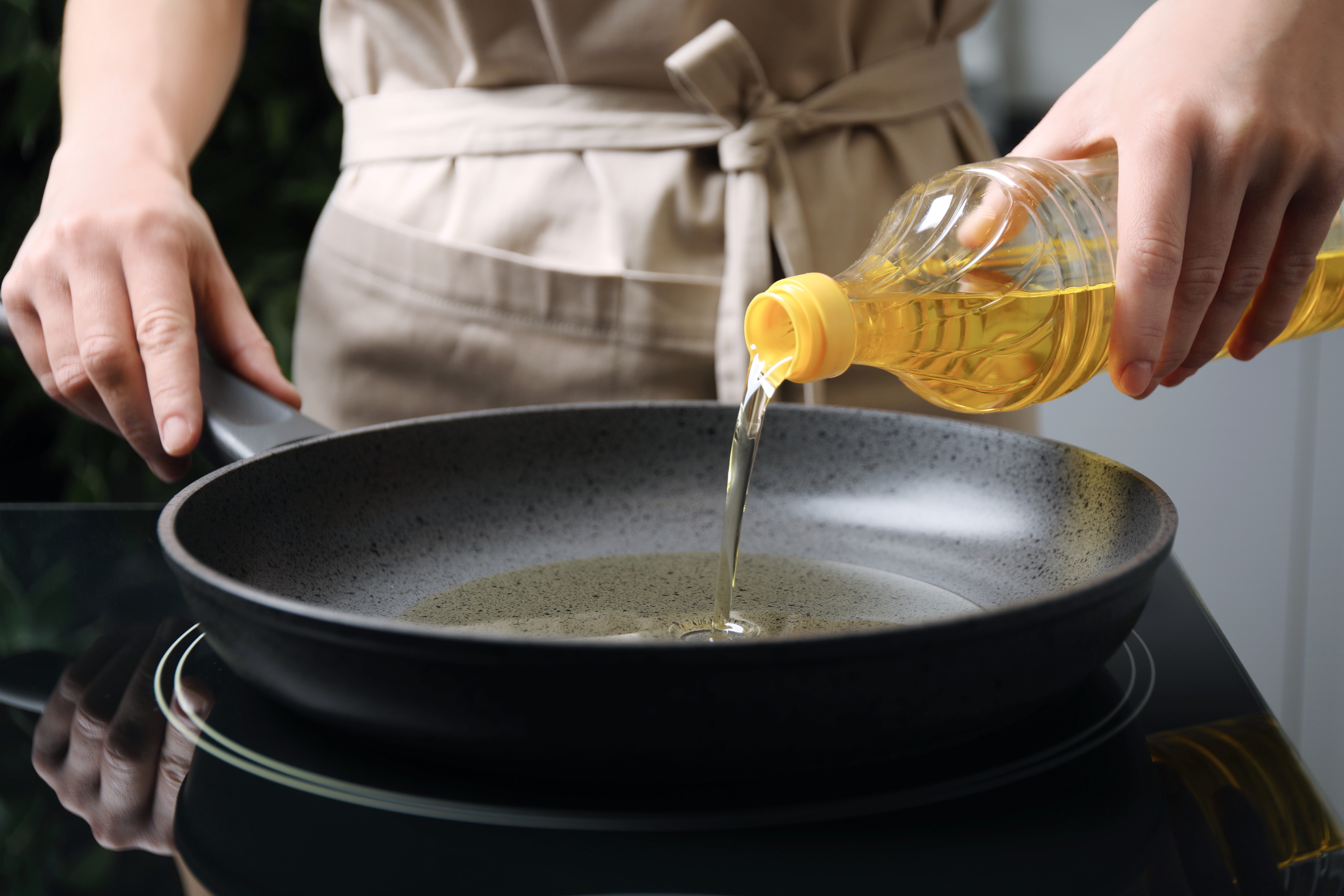
This rule applies to all cooktop cooking, but it’s something I learnt became even more important given how powerful the heat is that induction cooktops can generate and how it spreads across your entire pan. If you add oil and burn it on a high heat, it’ll start smoking faster than you may think. Plus, you should avoid heating an empty pan.
Aside from causing smoke within your home and potentially setting off the fire alarm, you’ll also want to think about your cookware. Heating oil too fast on the surface of your pots and pans can ruin a meal before you’ve even started it. So, heat oil slowly on a low-to-medium heat and wait before adding ingredients and turning it up. I'll delve into more below on how to tame the high heat of an induction cooktop, but over time you’ll come to learn what setting on your induction cooktop suits different ingredients best.
3. Being careless with my pans
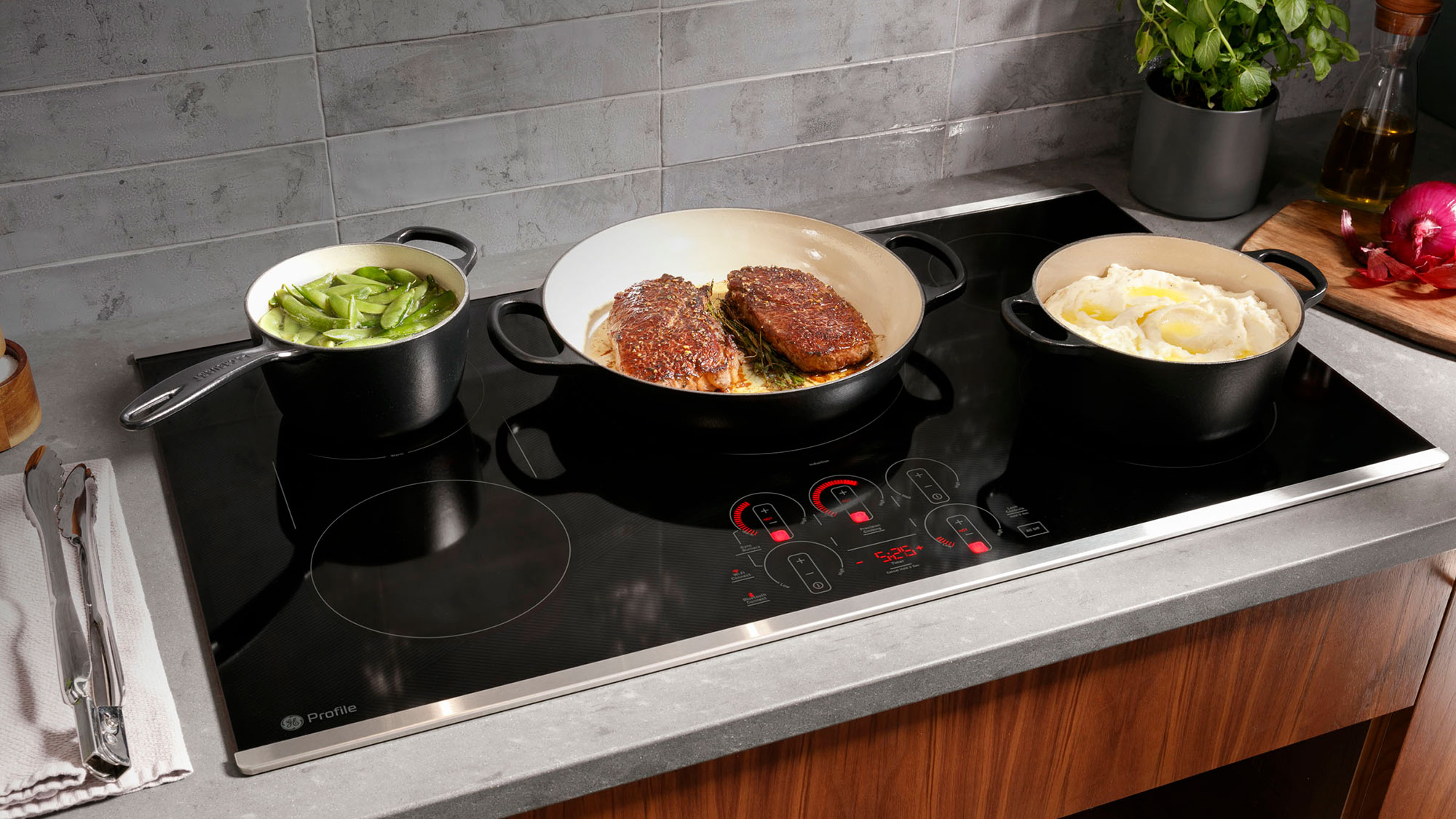
One of the first things you’re told about owning an induction cooktop is to be careful of scratching it. Fortunately, touch wood, I never have. But, that’s because I follow a few simple rules. Firstly, I make sure the bases of my cookware are always smooth. If they’re rough in any way, they can cause scratches. Something that's also easily done if you slide your cookware across the induction cooktop, which you should never do.
Sign up to get the BEST of Tom's Guide direct to your inbox.
Get instant access to breaking news, the hottest reviews, great deals and helpful tips.
For moving the cookware around, I always pick it up and place it down carefully. This is especially true if the pot or pan is particularly heavy. You’ll also want to ensure the surface of both the induction cooktop is dry, as well as your cookware, as this can cause damage to the bottom of your pan that can then cause scratches. Keeping everything dry will also result in better heating and ultimately, food.
4. Ramping up the heat
As with any cooking, if you heat food on too high a temperature, you can ruin the flavor, texture, or even burn it altogether. Induction cooktops are sensitive, which is great for regulating temperature control to suit your cooking needs, but, it’s not great if you think you need to use high heat to make sure it's definitely getting cooked through.
Thanks to the way induction cooktops work, the heat is evenly distributed throughout the pan meaning you’ll get an even cook. If you apply too high a heat, the whole pan is at risk of overheating your food. You’ll also often find a boost feature on your induction cooktop, which turns the heat up even further than normal.
The boost feature is perfect for getting boiling water quickly, but when it comes to cooking your food, you’ll want to avoid it if you don’t want it to heat it up too fast. I love this feature for browning meat, but I won’t use it for a long time before dropping back down to a more acceptable heat.
5. Neglecting cleaning
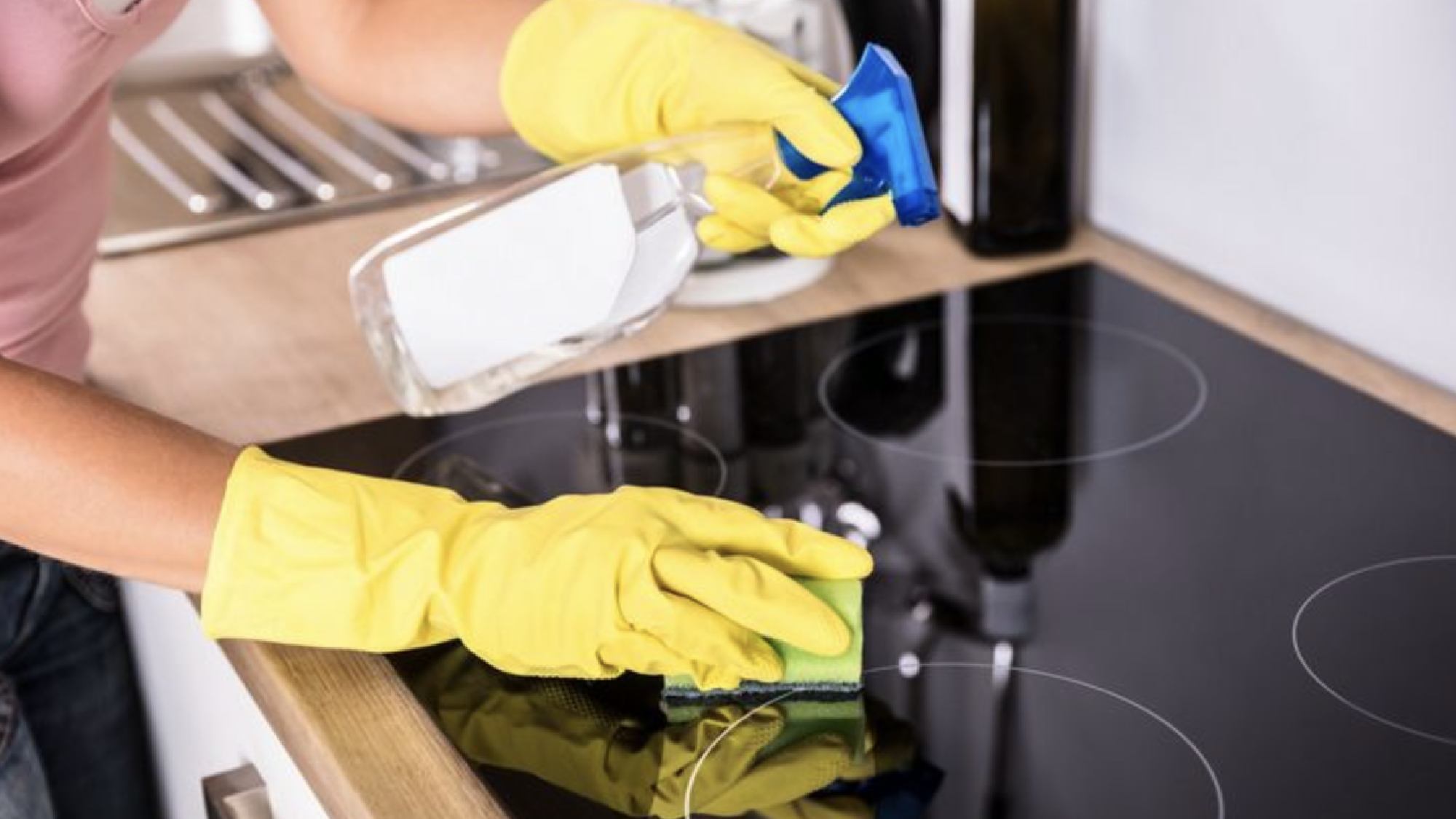
I’ll admit, one of the main reasons I was enticed to this way of cooking was because of by how easy it is to clean an induction cooktop. With just a soft cloth or sponge and some mild dish soap, you can wipe away any spills or mess quickly. But, it’s really important that you clean up as soon as the cooktop is cool enough to do so, otherwise it’ll become a stubborn stain that could damage your cooktop when wiped away.
You also don’t want to use any abrasive cleaning solutions or pads as they can scratch the surface of your cooktop. There’s certainly 5 things you should never use to clean an induction cooktop, but as a rule of thumb to avoid any scratches or damage, wipe away when you spot the spillage, and not later on.
More from Tom's Guide
Grace is a freelance journalist working across homes, lifestyle, gaming and entertainment. You'll find her writing for Tom's Guide, TechRadar, Space.com, and other sites. If she's not rearranging her furniture, decluttering her home, or relaxing in front of the latest streaming series, she'll be typing fervently about any of her much-loved hobbies and interests. To aid her writing, she loves to head down internet rabbit holes for an unprecedented amount of time.
You must confirm your public display name before commenting
Please logout and then login again, you will then be prompted to enter your display name.
